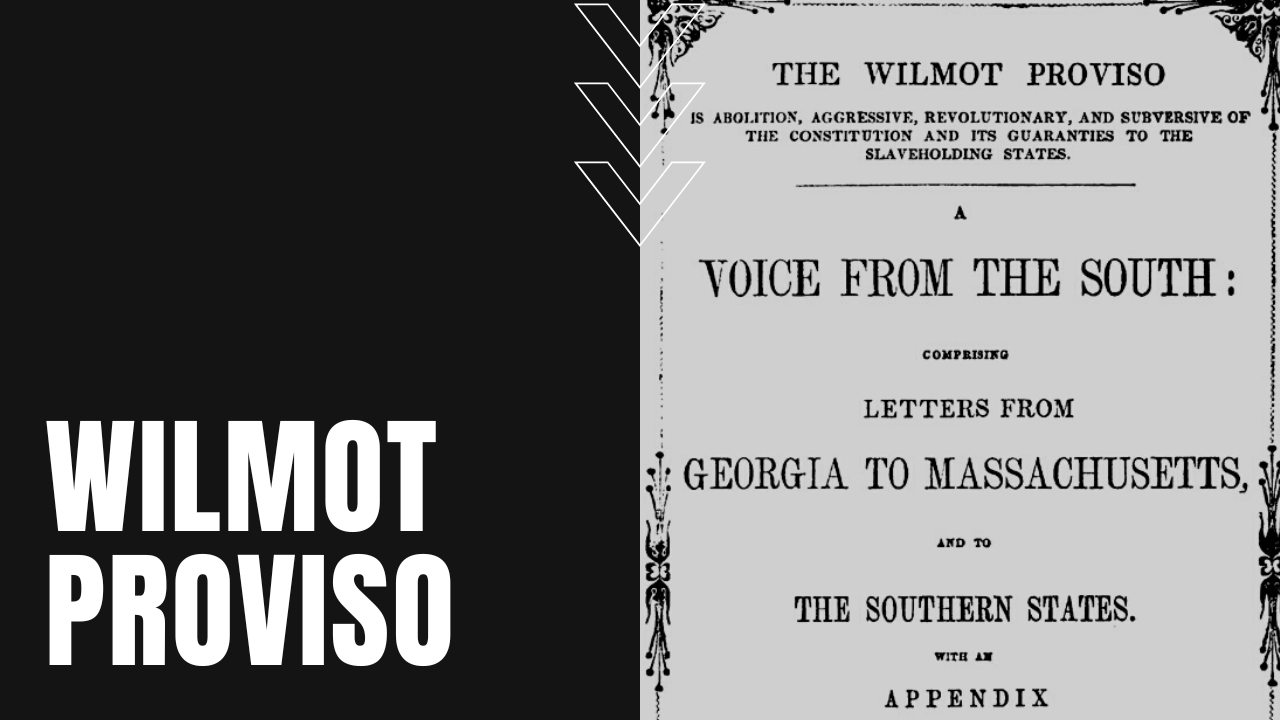Wilmot Proviso: Bill to Prohibit Slavery’s Westward Expansion

As a young nation pressed westward under the banner of manifest destiny, when President James Polk asked Congress for a $2 million appropriation to acquire territory from Mexico following the Mexican-American War, the issue of slavery in the newly-acquired territories came to an early head in 1846, some fifteen years before the start of the American Civil War.
While some historians have proposed the concept that 19th century America comprised multiple nations based on local economies and the pocketed ethnicities of immigrants, what can be said is that the northern states relied heavily on free labor industry and manufacturing, while southern crops like tobacco and cotton relied exclusively on slave labor.
Taken as a whole, differences in economic priorities colored the nation’s growing divide over slavery, particularly in light of a nation founded on the principle that “all men are created equal.”
Who Was David Wilmot?
Neither an advocate for slavery nor a staunch abolitionist, Pennsylvania Congressman David Wilmot was a member of the emerging Free Soil movement within a sharply-divided Democratic Party, which turned a blind eye on slavery where it currently existed, at the same time insisting on limiting slavery’s spread into new territories, which they felt would lead to reduced economic opportunities for white working-class Americans.
Wilmot Proviso’s Journey
On August 8th, 1846, Wilmot introduced his proviso before the House of Representatives, which effectively canceled the Missouri Compromise of 1820 by prohibiting slavery west of the Mississippi River below the 36th and a half parallel.
The measure passed the House but failed in the Senate, where southern bloc representation was stronger. Wilmot’s proviso again passed the House in February of 1847, but again went down in defeat in the Senate. A third attempt was made in 1848 as part of the Treaty of Guadalupe Hidalgo, which formally ended the Mexican-American War, but that too went down in defeat.
Failed Proviso, Success in Thought Provoking
Despite its dogged failure to become law, the Wilmot Proviso ended some 26 years of blind consent of slavery in Congress, spawning a marked increase in the sectional divides between free and slaveholding states. Combined with the Compromise of 1850, the Wilmot Proviso tabled the growing national discord over slavery for another decade to come, despite repeated fistfights and drawn guns in both houses of Congress.
That all ended on April 12th, 1861, when Confederate forces attacked Fort Sumter in Charleston Harbor, making the Wilmot Proviso, an important turning point in a nation’s ongoing debate over slavery.
